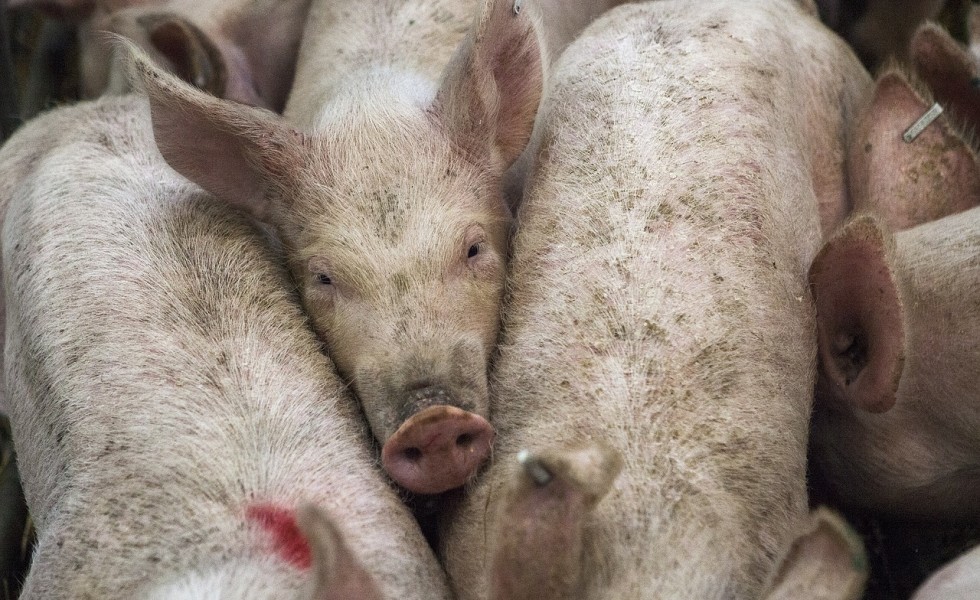Oink If It Smells Like Free Trade
Posted on April 22, 2015

Here’s what everybody knows about Paul Krugman: The openly partisan, twice-weekly columnist for the New York Times won the 2008 Nobel Memorial Prize in Economic Sciences.
Here’s what hardly anyone knows about Paul Krugman: The fiercely liberal Democrat and an unrepentant Keynesian is an avowed supporter of free trade.
No way, right? Oh yeah, way.
In fact, some of Krugman’s most biting commentary has been aimed at “public intellectuals” who “somehow find this particular idea impossible to grasp.”
To him, opponents of free trade choose to remain ignorant of its irrefutable truth because they “refuse to sit still for the 10 minutes it takes to explain Ricardo,” the political economist David Ricardo, a British contemporary of Adam Smith, who developed free trade’s core theory, comparative advantage.
It’s a classic Krugman put-down because, of course, all economists studied Ricardo and comparative advantage; to him they just might be too dense to get it. One, David Henderson, however, probably explained it better than Krugman or Ricardo ever did when writing a tribute to Krugman on his 2008 Nobel award.
“For example,” explained Henderson, “though you can rake leaves faster than the teenager next door, it still makes sense to hire him because you have a comparative advantage in writing software programs.”
So comparative advantage—and free trade—is simple, right? In Ricardo’s 1820s London it certainly was and, as Krugman has argued loud and long since the early 1990s, so it has remained.
Big Ag and almost every American farmer and rancher would agree. To them free trade is both as simple and divine as an American flag aflutter on a Fourth of July breeze.
Given today’s global economy, poisonous politics and trans-national interests, however, many of Big Ag’s biggest trade backers don’t see as simple or divine. In fact, free trade’s newest star, the Trans-Pacific Partnership, or TPP, may never rise (like the comatose, 14-year-old Doha trade talks) because of deep political and legal concerns both here and abroad.
For example, the highly integrated, corporately structured U.S. hog industry wants Japan, the world’s biggest pork importer, to slash pork import tariffs from about $2 per pound to zero as part of any TPP deal between the 12 nations now negotiating the pact. Japanese farmers offer cuts of $1 per pound but no lower.
Can Japanese Prime Minister Shinzo Abe defend the high-but-not-as-high tariffs demanded by his farmers in TPP talks? Will the White House accept the 50 percent pork tariff cut in return for deeper tariff cuts by Japan in, say, imported rice or cars? Will U.S. hog titans oppose the TPP if Japanese pork tariffs aren’t cut bone deep?
All are important questions as TPP talks stagger toward a finishing line. Not one, however, offers even a wink or nod to comparative advantage.
In fact, all are far more political and corporate and than economic. As such, trade deals like the TPP (Doha, too) transform Ricardo’s theory into something almost rustic or quaint when inserted into today’s 24/7 trans-national pursuit of profit.
Long-time free trader Paul Krugman acknowledged as much in a Feb. 2014 Times column titled “No Big Deal.” In it, the free-trading, liberal economist declared that he’d be “undismayed and even a bit relieved if the T.P.P. just fades away” because “there isn’t a compelling case for this deal, from either a global or national point of view.”
Indeed, what the TPP does, he explains, “is increase the ability of certain corporations to assert control over intellectual property… Is this a good thing from a global point of view? Doubtful. The kind of property rights we’re talking about here can alternatively be described as legal monopolies.”
And legal monopolies, dressed up as “free trade” deals but still smelling like lard, are a long way from hiring the neighbor kid to rake leaves.
© 2015 ag comm

It’s simply not true that farmers have supported free trade. (https://zcomm.org/zblogs/why-u-s-farmers-oppose-free-trade/) Farmers have massively opposed free trade, (when mobilized,) and for good reasons. Put another way, those representing fair prices for farmers, (i.e. NFU, NFO, National Family Farm Coalition, American Corn Growers Association,) have always opposed free trade, while those willing to allow the cheapest of cheap prices, (i.e. Farm Bureau, National Corn Growers Association, American Soybean Association,) have sided with the beneficiaries of cheap farm prices (corporate agribusiness,) in supporting it. Free trade doesn’t work for agriculture. Farm commodities “lack price responsiveness.” http://agpolicy.org/weekcol/248.html I doubt that Krugman understands the workings of agricultural economics. With economists it’s always a question of, even if they know the facts, will they support profit for the United States, (a basic business value,) or will free market ideology trump that.